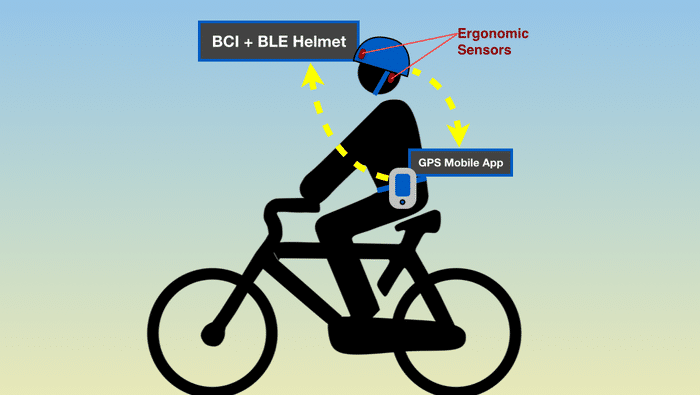 |
| Schematic of the MindRider helmet system. Image credit: kickstarter |
Called MindRider, the helmet lets you create mind maps of your travels to identify the routes you find stress-free.
While the green “sweetspots” in the maps indicate where the rider was most relaxed, the red “hotspots” show where they required the most concentration.
The MindRider helmet is being developed by Brooklyn-based start-up DuKorp, and was first invented by the company’s chief investigator Arlene Ducao when she was a student at the Massachusetts Institute of Technology (MIT) Media Lab.
It incorporates a forehead-based sensor that uses EEG (electroencephalography) to measure electrical activity in the rider’s brain, along with an ear-based sensor that is used to remove noise from the EEG signal.
An app on a Bluetooth-paired smartphone processes the data sent by the helmet’s brain-computer interface circuitry, and combines it with GPS data to create a mind map.
The idea is that using the mind maps, users can either create new routes that minimise the number of hotspots, or they can simply identify where the hotspots are in order to lessen their stress by being better prepared for them, Gizmag reported.

